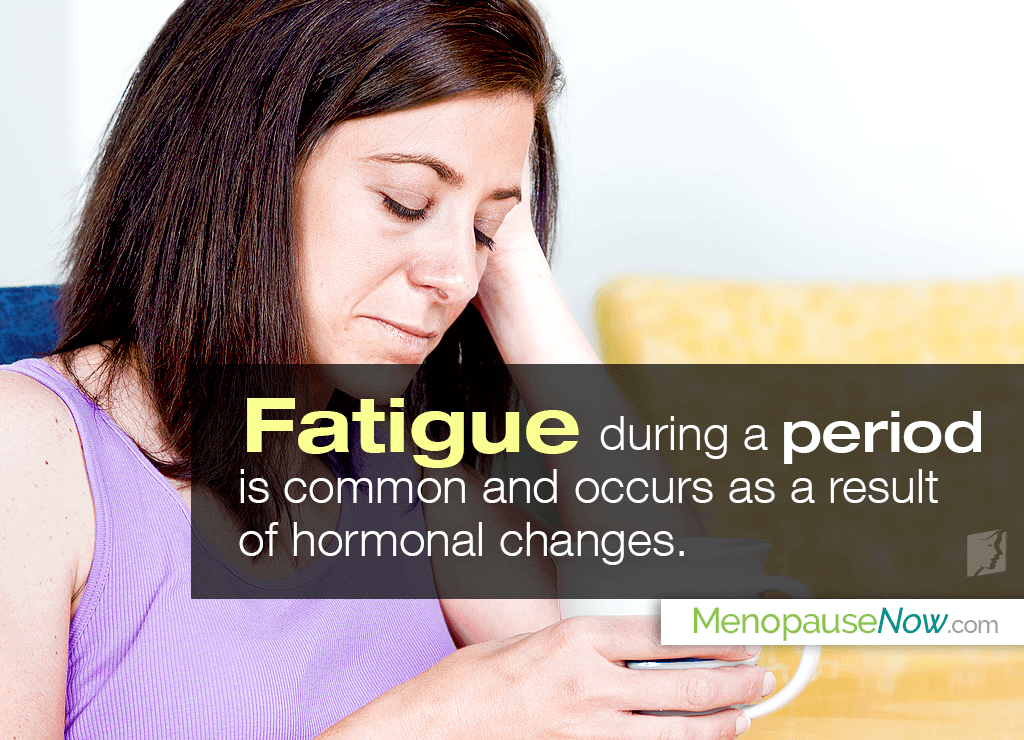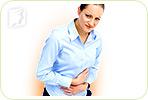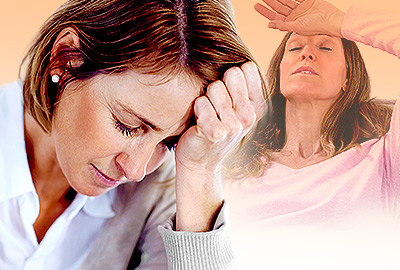It is not uncommon for women to suffer from tiredness during their periods. Although this might not occur every month, it can leave women feeling out of their normal selves and looking for relief. Continue reading to learn more about fatigue during your period, including why it happens, when you should be concerned, and what can be done for optimal energy levels.
Why Does Fatigue during a Period Happen?
Premenstrual syndrome (PMS) symptoms occur the week or two leading up to menstruation, often lasting for a few days into bleeding as well. As many as 75 percent of women suffer from PMS.1
The exact cause of PMS symptoms is unknown, yet women's sensitivity to hormonal fluctuations is believed to be at play. Moreover, hormone-induced fluctuations of the neurotransmitter responsible for mood states, serotonin, could trigger psychological symptoms, like fatigue.
What Else Could It Be?
While fatigue during a period is usually mild, some women are exhausted during a period and unable to carry through with daily life activities.
If extreme fatigue is often accompanied by other severe psychological symptoms, such as anger, paranoia, depression, and anxiety, it can be symptomatic of premenstrual dysphoric disorder (PMDD).
Being extremely tired during a period can also be symptomatic of menorrhagia, bleeding that is abnormally heavy or prolonged. With excessive blood loss, the body can suffer from iron deficiency anemia.
Because iron is necessary for the production of red blood cells, and red blood cells are needed to transport oxygen throughout the body, women can feel weak and tired from lack of oxygen.
What Can I Do for Relief?
There are certain lifestyle changes women can instill when suffering from fatigue while on their period. These measures include:
Sleeping well
If feeling tired during your period, put some healthy tips into practice, such as setting a set bedtime and wake-up time; taking time to wind down before going to bed; and avoiding mid-day naps.
Changing eating habits
Strive to eat smaller meals more often throughout the day instead of separating what you eat into three, large meals. For those suffering from iron-deficiency anemia, be conscious of incorporating iron-rich foods into your diet, including lentils, spinach, organ meats, or fortified cereals.
Exercising
When suffering from being tired during your period, getting moving may be the last thing on your mind. Various sources credit regular exercise with heightened energy levels in the long run as exercise releases mood-elevating neurotransmitters to make you feel good, reduce stress, etc.
For those who have been out of a workout routine for a while, it is a good idea to gradually build up, starting with a small amount each day.
Seeking treatment
Directly tackle the hormonal imbalance at fault by pursuing natural and effective fatigue treatments, which instill the use of alternative medicine proven to beat PMS and menopause symptoms.
Not only will women be increasing energy levels to get back up and at it, but they will also take care of any other symptoms of hormonal imbalance putting a downer on their lives, such as mood swings, hot flashes, irritability, and more.
Conclusions
Fatigue during your period is irritating, but it's usually no cause for alarm. By following the few simple guidelines outlined above, you should find that episodes of fatigue during menstruation wane or even disappear altogether. Within no time, you will be up and on your feet, ready to take on the days ahead of you!
Sources
- Institute for Quality and Efficiency in Health Care. (2009). Heavy periods: Overview. Retrieved December 5, 2019, from https://www.ncbi.nlm.nih.gov/books/NBK279294/
- John Hopkins Medicine. (n.d.). Premenstrual Dysphoric Disorder (PMDD). Retrieved December 5, 2019, from https://www.hopkinsmedicine.org/health/conditions-and-diseases/premenstrual-dysphoric-disorder-pmdd
- MedlinePlus. (2018). Premenstrual dysphoric disorder. Retrieved December 5, 2019, from https://medlineplus.gov/ency/article/007193.htm
- NHS. (2018). Self-help tips to fight tiredness. Retrieved December 5, 2019, from https://www.nhs.uk/live-well/sleep-and-tiredness/self-help-tips-to-fight-fatigue/
Footnotes:
- Mayo Clinic. (2018). Premenstrual syndrome (PMS): Symptoms & causes. Retrieved December 4, 2019, from https://www.mayoclinic.org/diseases-conditions/premenstrual-syndrome/symptoms-causes/syc-20376780




